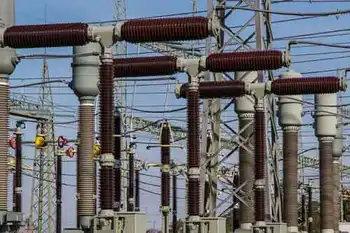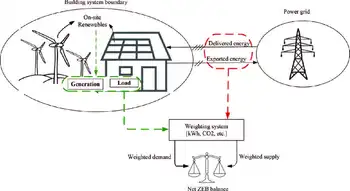Concerns raised over mercury in light bulbs
By Toronto Star
High Voltage Maintenance Training Online
Our customized live online or in‑person group training can be delivered to your staff at your location.

- Live Online
- 12 hours Instructor-led
- Group Training Available
It has many cheering, but at the same time concerned that important details — such as the safe disposal of a toxic component of the bulbs — were glossed over.
"Along with a general policy to increase the use of compact fluorescent (light bulbs), which is a reasonably happy idea for the environment, it's also necessary to think about ways of promoting the capture and recycling of those," said Ron Pushchak, a professor with Ryerson University's School of Occupational Health and Safety.
The problem lies with the mercury contained in the fluorescent bulbs. There are only four or five milligrams in a compact bulb, said Pushchak, but it's still a neurotoxin and a hazardous material.
Pushchak, who studies waste disposal and environmental impacts, said more often than not, light bulbs are broken when they're tossed out with the trash.
When that happens with a compact fluorescent bulb, the mercury vaporizes, travels in a general northern direction with the atmosphere and is deposited. It then is absorbed into plant and animal systems, as well as the soil.
Health Canada issued new recommendations for fish consumption, due to rising levels of mercury that has made its way into the food chain.
What's needed, said Pushchak, is a curbside collection system for all household hazardous waste.
"Fortunately we have some time — but not much," he said.
Attendees of the Green Living show in Toronto said, in the meantime, more information is needed. Many people there said they already use compact fluorescent bulbs to light their homes, but are unsure of how to properly dispose of them.
Jon Hagan has already thrown out a bulb that blew with a burst of white light after just two months of use. He said he would like more information and even suggests a fee be factored into the cost of the already pricey light bulbs in order to fund a disposal or recycling system.
"The claim is that there's not very much (mercury), but there are a lot of light bulbs out there," he said.
Home Depot Canada, the largest retailer of lights in the country, has said the company is working, together with Phillips Lighting, on a plan to safely recycle the fluorescents.
Beth Ross, a librarian from Goderich, Ont., said she has been using the bulbs for several years, but hasn't had to replace any.
When she does, she said she's not sure how she will go about disposing of them.
For now, her concern is that the light bulbs don't fit everywhere. "Not all of my light fixtures are suitable for them, but I expect industry will come out with a design to meet all our needs," she said.
Stacey and Shinya Kumazawa also wish the light bulbs were more versatile. They too have the bulbs in their home — everywhere they fit, that is.
"I think they're great. We try and use them as much as we can," said Stacey Kumazawa.
But Shinya Kumazawa isn't crazy about the colour. The compact fluorescent bulbs give off a cooler, bluer light rather than the warm tone the incandescent bulbs emit. As an artist, it's difficult for him to work with the different lighting, which he said is also weaker than regular bulbs.
The cost of the bulbs is also seen as a barrier to some. The compact fluorescent bulbs cost around $2.50 while incandescents are just 50 cents. However, consumers will save in the long run on energy bills.











